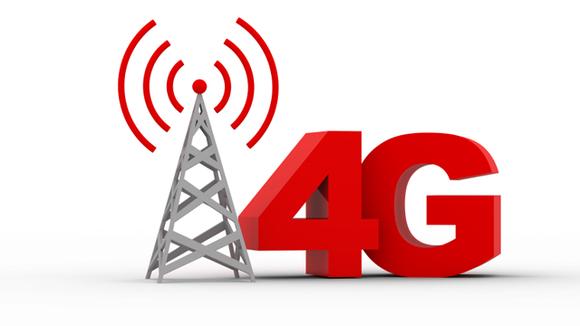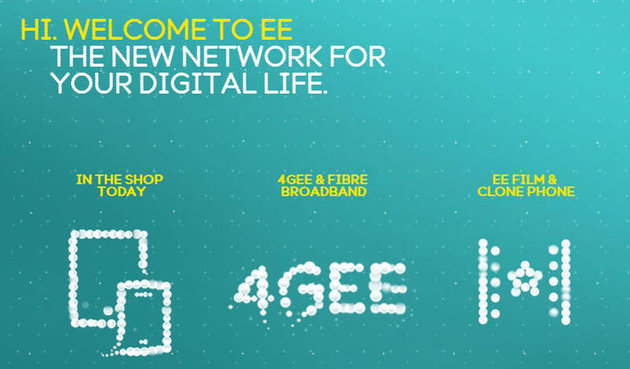Given that most people only shop for a new mobile phone once every two years, the chances are that if you’re currently looking for a new mobile, things have changed a little, since the last time you went shopping. One of the biggest new features that we’re starting to see on mobiles is 4G. Today we’re talking about 4G, what it is, the good and bad points of having it, and whether or not you should be buying a 4G capable phone. So, if you’re wondering what all the fuss is about, here’s a brief guide to 4G phones…
Highlights of Contents
What is 4G?
Internet connectivity is a standard feature of smart phones these days, and many of us depend on our mobile internet to keep up with our emails, post on Facebook and to get directions. However, the standard internet connection on a phone is a 3G connection. 4G is simply the next generation of connectivity, a different way of getting a mobile internet service.

What are the Benefits of 4G Phones?
The main benefit of having a phone that’s 4G capable is simply that you get a faster internet connection. 4G mobile internet is up to ten times faster than traditional 3G mobile internet. This means that you get a quicker service, downloads complete faster, web pages load faster. But it also means that you can use your mobile for more internet based tasks. Given that the speeds of 4G internet are similar, and sometimes even better, than those of a home broadband connection you can now use 4G phones to do everything that you would do on your home computer. This includes streaming video without buffering or lagging, and playing high end online games. For many people this ability makes a 4G phone very desirable indeed.
What about the Down Sides?
However, there are a few down sides to having a 4G phone. Firstly, there’s the cost. A 4G phone is going to cost you more, it’s new technology and seen mostly on high end mobiles, which cost a fair amount of money. But not only that, the service is going to cost you more as well. In order to take advantage of your phone’s 4G capabilities, you’re going to need a specialized 4G data plan. These plans will cost you around two to three times as much as a 3G data plan. But without a 4G plan, your phone is simply going to connect to your operator’s 3G network by default. And then there’s coverage. 4G is relatively new, which means that not all operators have 4G networks in place. And even those operators that do have a 4G network don’t get coverage for the whole country. It’s perfectly possible that you live in a place that does not yet have access to a 4G network, making a 4G phone and a 4G data plan just a waste of money.

Whilst many operators are starting to offer 4G data plans, not many of them are actually getting good speeds. In fact, there’s really only one UK operator that’s getting decent 4G speeds, and that’s EE. Because of this lack of competition, prices are high. Finally, there is an as yet hypothetical problem with 4G. Mobile data networks are a lot like roads, in that the more traffic there is on the network, the slower speeds become. One of the reasons that 3G users often experience data speeds that are slower than advertised speeds is simply because so many people are using the same network, particularly at peak times such as lunch time or after work. Right now 4G networks are still pretty empty, meaning that the few customers that are using them are getting great speeds. However, it’s perfectly possible that as more customers switch to 4G speeds will get slower as traffic increases.
What’s the Future of 4G?
4G is indisputably set to become the standard for mobile internet in the next few years. All of the major UK networks are currently working on building the infrastructure necessary to bring 4G to their customers. Experts estimate that over eighty per cent of the UK should have access to a 4G network in the next eighteen months. And as networks become completed, speeds with operators other than EE should improve. Plus, more competition will mean that prices on 4G data packages start to drop. Just because you don’t have access to a 4G network right now doesn’t mean that you won’t in the very near future. 4G is spreading incredibly rapidly.

Should I Buy a 4G Phone Now?
The question is whether or not it’s worth investing in a 4G capable phone if you’re mobile shopping right now. The first thing that you need to do is to check that you’re eligible for service. If you’re currently in the middle of a mobile contract, you’re going to need to check with your operator to see if they even have a 4G data plan, and if so, what the speeds are like, how much it’s going to cost you, and whether or not your live in an area that’s going to get 4G coverage. All mobile operators have coverage maps on their web sites, so you can check there, or you can just call your operator’s customer service number and ask. If you’re in a position to sign a new contract with a new operator, then you’ll still need to check and see if you’re going to get coverage. If you’re looking for real 4G speeds, then look at coverage with EE, although other operators are improving their speeds rapidly. You’re also going to have to be willing to pay the price. As we’ve mentioned, 4G data plans don’t come cheap. And on top of that, there’s currently no unlimited 4G data plan available on the market, so you are going to have to deal with a monthly data limit. If you don’t have access to a 4G network, you probably will soon, so some people are choosing to buy 4G capable phones as an investment for the future. That really depends on you. But it might be worth saving your cash for now and going with a 3G phone, because the next time that you go phone shopping 4G should be more available and cheaper too.
Sam Jones was looking for the latest 4G phones but wanted a great deal. He shopped around using uSwitch and similar price comparison sites before signing his contract.
